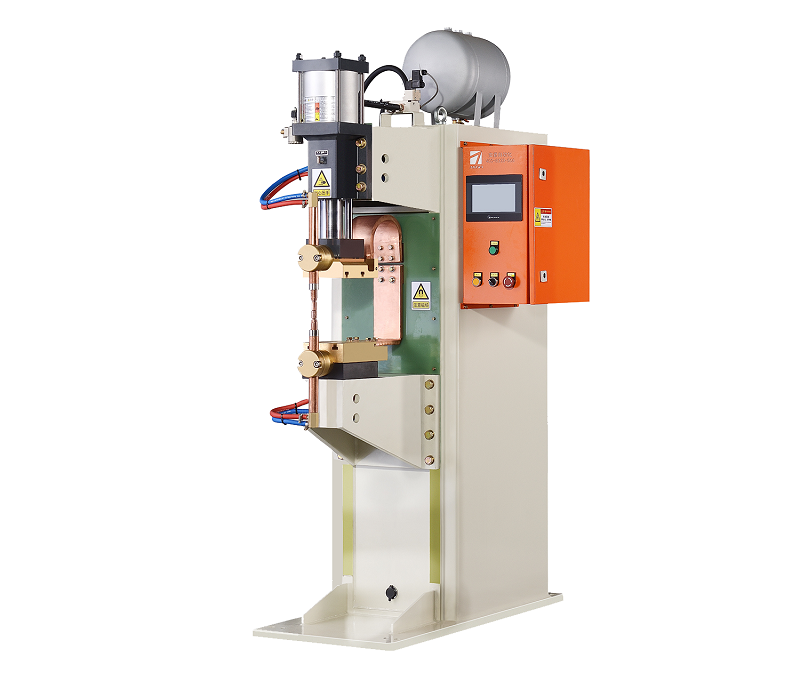Electrode pressure is a critical parameter in medium frequency inverter spot welding machines that significantly affects the strength and quality of the weld joint. This article aims to explore the relationship between electrode pressure and weld strength in medium frequency inverter spot welding machines.

- Contact Resistance and Heat Generation: Electrode pressure plays a crucial role in establishing a low-resistance electrical contact between the electrodes and the workpieces. Adequate pressure ensures good metal-to-metal contact, reducing the contact resistance. This, in turn, facilitates efficient heat generation at the interface, promoting proper fusion and metallurgical bonding. Insufficient pressure can result in poor electrical contact, leading to lower heat generation and compromised weld strength.
- Material Deformation and Flow: Electrode pressure influences the deformation and flow of the workpiece materials during the welding process. Higher pressure promotes better material deformation, enabling the intimate contact and intermixing of the base metals. This enhances the diffusion of atoms and the formation of strong metallurgical bonds, resulting in a higher weld strength. Insufficient pressure may impede material flow and restrict the formation of a robust weld joint.
- Nugget Formation and Size: Adequate electrode pressure ensures proper formation and growth of the weld nugget. The pressure applied by the electrodes helps to confine the molten material within the weld zone, preventing excessive expulsion or expulsion of the molten metal. This leads to the formation of a well-defined and adequately sized weld nugget. Insufficient pressure may cause incomplete fusion or irregular nugget formation, compromising the overall weld strength.
- Microstructural Integrity: The electrode pressure affects the microstructural integrity of the weld joint. Optimal pressure promotes grain refinement, which enhances the mechanical properties of the weld, such as hardness and toughness. Additionally, higher pressure helps to minimize the presence of voids, porosity, and other defects within the weld, resulting in improved weld strength. Insufficient pressure can lead to inadequate grain refinement and increased defect formation, reducing the weld strength.
The electrode pressure in medium frequency inverter spot welding machines has a direct influence on the weld strength. Adequate pressure promotes efficient heat generation, proper material deformation and flow, and the formation of a well-defined weld nugget. This results in strong metallurgical bonding and improved weld strength. Manufacturers should carefully control and optimize the electrode pressure based on the specific material properties, joint requirements, and desired weld strength. By maintaining appropriate electrode pressure, manufacturers can achieve reliable and high-quality weld joints in their spot welding processes.
Post time: May-25-2023


